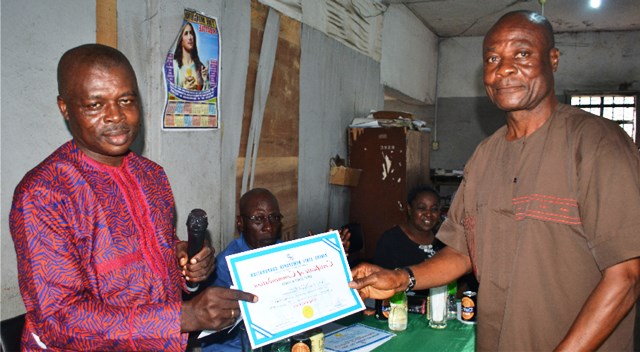Business
NCC Solicits Judiciary’s Support To Fight Cyber Crime

The Nigerian Communications Commission (NCC) has called for the cooperation and contributions of the judiciary to checkmate rising cases of cybercrime in the country.
The Executive Vice Chairman of NCC, Prof. Umar Danbatta made the plea in Lagos during the “2018 Annual Workshop for Judges on Legal Issues in Telecommunication’’.
He said that in spite of the country’s positive achievements in digitalisation, the country was still facing issues concerning cyber security, information and data protection.
A board membr of NCC, Mr Clem Baiye represented Danbatta.
“Cyber criminals have continued to develop new strategies to circumvent cyber security, regardless of measures put in place to checkmate their acts.
“It is necessary to discuss the admissibility of electronic evidence toward the successful prosecution of such cyber criminals.
“As such, the commission recognises the need for the judicial system to be part of those making contributions to checkmate the issue of cybercrime.
“Hence, the bold step behind exposing our judges to issues in telecommunication, ‘’he said.
According to him, digitalisation has changed our lives more than any other technical revolution because it has affected our means of communication, fundamental rights and privacy.
Danbatta said that the increase in cybercrime might be due to the proliferation of the internet and the decreasing cost of technology, which had provided millions of users the access to enormous resources.
He said that the workshop was also meant to discuss Artificial Intelligence (AI), a tool that enabled people to rethink how they integrate information, analyse data and use the resulting insights to improve decision-making.
Danbatta said that the commission would demonstrate how AI was already altering the world and raising important questions for the society, the economy and how it had affected the courts in speeding up decision-making.
Business
Fidelity Bank To Empower Women With Sustainable Entrepreneurship Skills, HAP2.0
Business
President Tinubu Approves Extension Ban On Raw Shea Nut Export
Business
Crisis Response: EU-project Delivers New Vet. Clinic To Katsina Govt.
-

 News3 days ago
News3 days agoAmend Constitution To Accommodate State Police, Tinubu Tells Senators
-

 Politics3 days ago
Politics3 days agoSenate Urges Tinubu To Sack CAC Boss
-

 News3 days ago
News3 days agoDisu Takes Over As New IGP …Declares Total War On Corruption, Impunity
-
Business3 days ago
President Tinubu Extends Raw Shea Nuts Export Ban To 2027
-
Business3 days ago
Crisis Response: EU-project Delivers New Vet. Clinic To Katsina Govt.
-
Sports3 days ago
NDG: Rivers Coach Appeal To NDDC In Talent Discovery
-
Business3 days ago
President Tinubu Approves Extension Ban On Raw Shea Nut Export
-
Rivers3 days ago
Etche Clan Urges Govt On Chieftaincy Recognition

